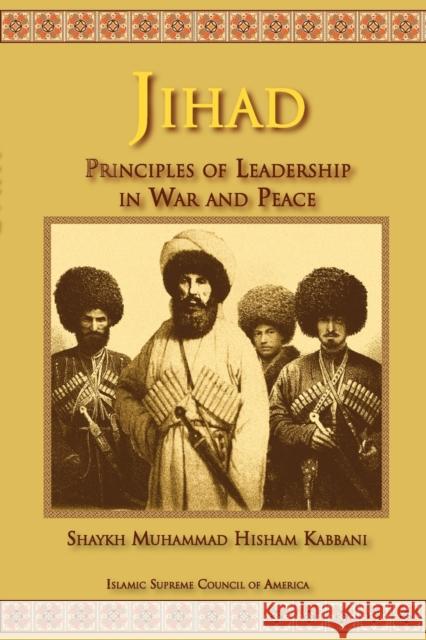Jihad: Principles of Leadership in War and Peace » książka
Jihad: Principles of Leadership in War and Peace
ISBN-13: 9781930409934 / Angielski / Miękka / 2010 / 136 str.
Jihad is a term that has become universally known today. What is meant by this word, which invokes frightening images of men in masks, wearing suicide vests, brandishing automatic weapons in one hand while holding the Holy Quran in the other. Is Jihad an ongoing war directed at converting non-Muslims to Islam at the edge of the sword? Or is it an ideological movement to establish an Islamic empire stretching from the Far East to the Far West? From what we see in the nightly news, it appears humanity is headed for the sort of clash of civilizations that Samuel Huntington feared. In reality, this is no clash between Islam and the West, or between Islam and Christianity. Were it the case, Muslims would be attacking the Christian communities in their own nations. While isolated conflicts along these lines occur, they have never been the prime focus of the Jihadist movement. What we are witnessing instead is a clash between people with power and those without. It is a conflict rooted in the history of colonialism and perceptions of present-day imperialism. It is a conflict in which religion is simply a means to an end. We must recognize this if we are to understand the true nature of the so-called "Jihad" the militant Islamists invoke and its increasingly global character. In this book we would like to shed light on the meaning of Jihad in the traditional understanding of Islam. The concept of "holy war" does not occur in the term Jihad. Rather the meaning of combative Jihad expressed in Qur'an or hadith is simply war. That said, we will show in this presentation, that Jihad in the classical sense does not simply mean war. In fact Jihad is a comprehensive term which traditionally has been defined as composed of fourteen different aspects, only one of which involves warfare. We will also show that the best thing Muslim moderates could do today to counter the Jihadist global strategy would be a "Jihad" of charity and good works designed for the rich Muslim nations to raise the standard of living of the poor ones.
Jihad is a term that has become universally known today. What is meant by this word, which invokes frightening images of men in masks, wearing suicide vests, brandishing automatic weapons in one hand while holding the Holy Quran in the other.Is Jihad an ongoing war directed at converting non-Muslims to Islam at the edge of the sword?Or is it an ideological movement to establish an Islamic empire stretching from the Far East to the Far West?From what we see in the nightly news, it appears humanity is headed for the sort of clash of civilizations that Samuel Huntington feared. In reality, this is no clash between Islam and the West, or between Islam and Christianity. Were it the case, Muslims would be attacking the Christian communities in their own nations. While isolated conflicts along these lines occur, they have never been the prime focus of the Jihadist movement.What we are witnessing instead is a clash between people with power and those without. It is a conflict rooted in the history of colonialism and perceptions of present-day imperialism. It is a conflict in which religion is simply a means to an end. We must recognize this if we are to understand the true nature of the so-called "Jihad" the militant Islamists invoke and its increasingly global character.In this book we would like to shed light on the meaning of Jihad in the traditional understanding of Islam. The concept of "holy war" does not occur in the term Jihad. Rather the meaning of combative Jihad expressed in Quran or hadith is simply war.That said, we will show in this presentation, that Jihad in the classical sense does not simply mean war. In fact Jihad is a comprehensive term which traditionally has been defined as composed of fourteen different aspects, only one of which involves warfare. We will also show that the best thing Muslim moderates could do today to counter the Jihadist global strategy would be a "Jihad" of charity and good works designed for the rich Muslim nations to raise the standard of living of the poor ones.











